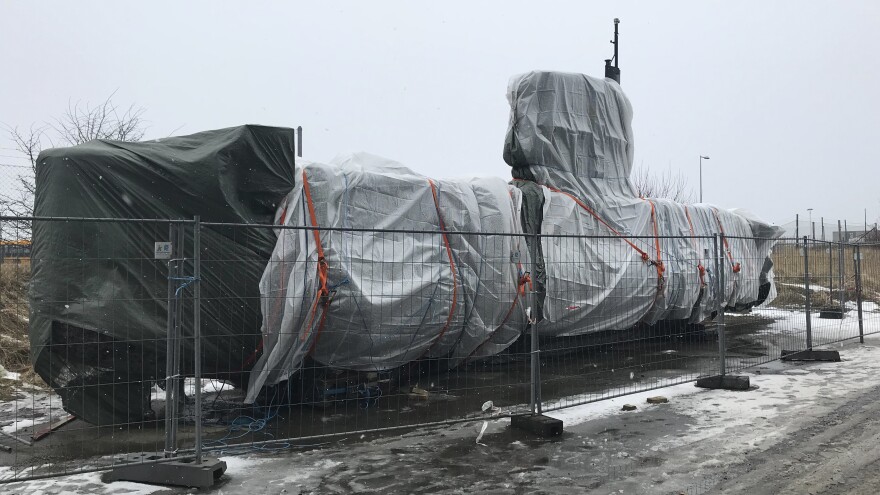Editor's Note: This post contains graphic descriptions that some may find disturbing.
Peter Madsen, the Danish inventor accused of murdering a Swedish journalist aboard his private submarine, pleaded not guilty to the charge Thursday at the start of his trial. The opening comments marked a new phase for a gruesome case that has for months drawn investigation and intense international attention.
Madsen has admitted to dismembering and indecently handling Kim Wall's corpse, which washed ashore first as a headless torso in the weeks following her disappearance, but he maintains that the 30-year-old freelance journalist's death was an accident.
Wall had been working on a profile of the inventor, whose works and eccentric reputation had earned him the moniker "Rocket Madsen," and failed to return from a voyage she'd planned alone with him. When Madsen was rescued from his sinking sub the next day, he initially told police he had set her safely ashore before ultimately arriving at his current account of events: that she died in a "terrible accident" — first described as a heavy hatch falling on her head, then later as carbon monoxide poisoning.
"I didn't wish to share with the whole world how Kim Wall died," Madsen, dressed in black T-shirt and jeans, said in court Thursday when asked about his explanations, according to The Associated Press. Though Madsen said he tried to revive her after finding her "lifeless," the wire service adds, he said he stopped giving her first aid because "there was a risk of having a submarine with two deaths."
The prosecution said it is still not clear how exactly she died. But according to freelance journalists reporting from inside the courtroom, prosecutors say that several other things are clear.
When Madsen was rescued, "he had fresh scratches on both forearms and dried blood under his left nostril," prosecutor Jakob Buch-Jepsen said Thursday, as Richard Orange notes. "The blood belonged to Kim Wall."
And investigators say they found videos on his computer depicting the torture and mutilation of real women, adding that he also — in Maddy Savage's words — "googled a video of a woman having her head slowly cut off."

Earlier in their investigations, prosecutors said they had found more than a dozen stab wounds in and around Wall's genitals. This finding, and other DNA evidence found on Madsen, led them also to charge him with sexual assault without intercourse — an allegation Madsen also denies.
Julie Astrid Thomsen reports that, when Madsen was asked if he was sexually aroused by dismembering the body, he responded in the negative, adding that "I worry for you when you ask like that."
Prosecutors, for their part, cited a psychiatric report of Madsen that they say found him to be a man "with psychopathic tendencies" and with "no empathy or feelings of guilt."
The trial's first day has wrapped up for the day. It is scheduled to continue later this month and deliver a verdict on April 25.
Copyright 2020 NPR. To see more, visit https://www.npr.org. 9(MDAwMzY5MzE4MDEzMTE3ODg5NDA4ZjRiNg004))



